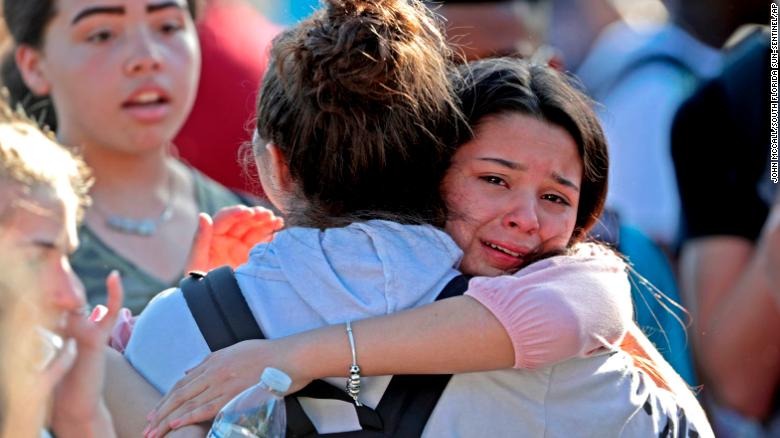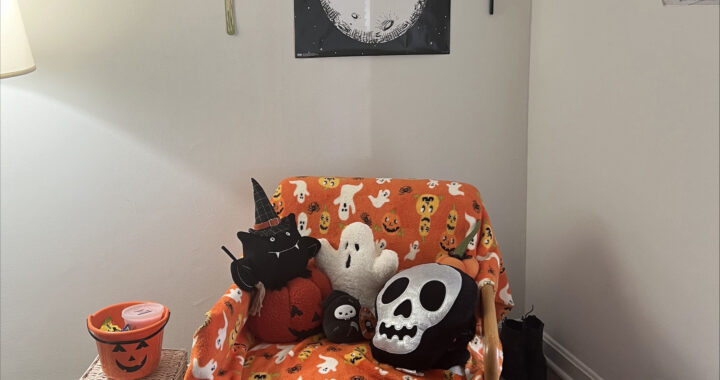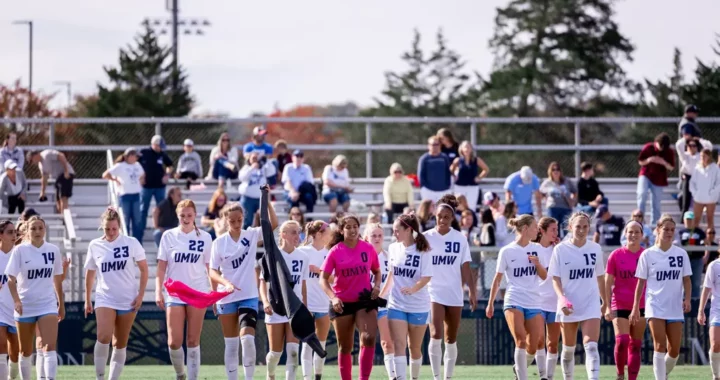It could happen to anyone: A personal perspective on the school shooting epidemic
7 min read
Students released from a lockdown embrace following following a shooting at Marjory Stoneman Douglas High School in Parkland, Fla., Wednesday, Feb. 14, 2018. (John McCall/South Florida Sun-Sentinel via AP)
By GINNY BIXBY
Viewpoints Editor
It was the morning of June 18th, 2004. It was my little brother’s birthday, and my mom was about to drive me to my last day of kindergarten. I remember eating breakfast when the phone rang and my mom picked up. It was my dad calling from Bull Run Middle School in Gainesville, VA, where he was the principal, to tell my mom the horrific news- a student had brought a gun to school.
I don’t remember being scared- granted, this happened when I was six years old. My mom was honest with me and did tell me what had happened, but all I remember thinking was, ‘oh, daddy will fix it.’ I was so young, and I remember feeling like there was nothing in the world that my dad couldn’t stop.
Now at age 20, mere days after the mass shooting at Marjory Stoneman Douglas High School, I think about how lucky the students and faculty at my father’s school were fourteen years ago. The assistant principal, an experienced hunter, recognized the sound of a gun being loaded in the boys’ restroom. He and the other administrators put the school into full lockdown procedures. While the student did point the rifle at several students and faculty members, including a secretary who was on the phone with the police, a teacher was able to talk him down. He never fired one shot, and nobody was hurt. The incident made national news, and my dad and the rest of administration were praised for having such an effective plan in place for these kinds of incidents. But as I’ve gotten older, the impact of this event and how close I was to experiencing the effects of a school shooting first-hand doesn’t escape me.
School shootings, and mass shootings in general, are something the public seems to have become numb to. I include myself in this. I found out about the shooting at Stoneman Douglas through a Washington Post notification on my phone, and I honestly wasn’t shocked or taken aback when I saw it. It seems that there is some kind of shooting every week now, whether it be in a school or a church, whether it takes the lives of a handful of lives or 17- all innocent, precious lives, regardless of the number. And while we recognize each instance as horrific and tragic, it has become normal.
Growing up in public school in the years after the shooting at Columbine High School in 1999, I was no stranger to lockdown drills. Multiple times per school year, everyone had to huddle in the corner and we were threatened to be quiet while faculty members would rattle the locked door knobs of the classrooms, roleplaying as intruders. Especially as I got older, I became increasingly more frustrated with classmates and even a few teachers who didn’t take the drills as seriously as they should. Over the years my parents had revealed more and more to me about the incident at my dad’s school, and school shootings became a very personal issue to me. Once in eighth grade, I got so upset with how students in my civics class were behaving during a lockdown drill that I asked my teacher if I could tell my dad’s story. She encouraged me to do so, and I will never forget the hush that fell over the class after I told them how how close to home this hit.
However, there is an issue with all of that. While I commend public school administration in being so proactive in trying to prevent these kinds of tragedies, why are students having to train to be prepared in the event of an active shooter entering the school? How do you explain that to a child? As much as I got so angry when my classmates would giggle and joke during lockdown drills, they were children, and they were in an incredibly awkward situation. How else can they be expected to behave?
We live in a country where we care more about our right to own a gun than our children’s rights to not be scared of an active shooter entering their school. Gun control is a vast and complex issue, but in the majority of the guns used to commit these mass shootings are not personal protection handguns or hunting rifles. According to USA Today, an AR-15 assault rifle has been used in at least 13 mass shootings in the past 35 years, including the shootings at Sandy Hook Elementary School in 2012, the Pulse nightclub in 2016, and in the past year alone, was used in the shootings at the Las Vegas music festival, First Baptist Church in Sutherland Springs, and Stoneman Douglas last week. The AR-15 rifle is intended to commit mass assault. It is not a weapon intended for sport or self-protection. It is a weapon that should only be allowed in the hands of military officials and SWAT teams, not something the average person can purchase easily. Walmart sold AR-15 rifles up until 2015. It is easier to buy a gun than it is to get a learner’s permit to drive. There is so much wrong with this.
On Tuesday, President Donald Trump announced that he was directing the Justice Department to ban the use of “bump stocks”, an accessory that can be attached to semi-automatic rifles to allow for more rapid firing and was used in the shooting in Las Vegas in 2017. This is a great and surprising move forward, especially given that Trump is endorsed by the NRA and has voiced that he is a strong supporter of the Second Amendment. However, Trump signed a bill that revoked Obama-era gun checks for people with mental illnesses almost a year ago. Trump’s American Health Care Act would also make it more difficult for people to receive treatment for mental illnesses if they are deemed pre-existing conditions. The irony is that after the shooting at Sutherland Springs in November, Trump said to reporters that the mass shooting issue “isn’t a guns situation” but “a mental health problem at the highest level.” He echoed this sentiment after the Stoneman Douglas shooting, tweeting, “So many signs that the Florida shooter was mentally disturbed, even expelled from school for bad and erratic behavior. Neighbors and classmates knew he was a big problem. Must always report such instances to authorities, again and again!” However, Trump clearly doesn’t seem to care about actually fixing the issues with mental health care in America. Also, the shooter at Stoneman Douglas was reported to authorities many times for disturbing behavior, Instagram posts, and even YouTube comments, yet nothing was done to prevent this.
Mental illness is a highly stigmatized issue that needs to be addressed more openly, however, it seems to only ever be addressed by politicians in the days following a major tragedy, and then discussion of the issue quickly disappears. It’s a complicated issue, and after every mass shooting, there’s a lot of public debate over whether the shooter was mentally ill or not. While some shooters do have a history of mental illness, not all mentally ill people are dangerous. It’s a highly nuanced issue, but regardless, mental health care is an issue that is not given proper attention. It isn’t something that goes away after a shooting happens- it’s a constant, fluid issue, and it’s not something to simply be brought up and eventually dismissed in the wake of tragedy. In the case of my dad’s school, some students said that they knew that the boy who brought the gun to school was being bullied, and that this may have motivated him to plot the shooting. Bullying is another issue in our society that needs to be addressed along with mental illness.
We need to decide what we value most as Americans. Do we value the lives of our children, or do we value our semi-automatic rifles? I am amazed and inspired by the courage of the survivors of the Stoneman Douglas shooting who have spoken to politicians about the need for gun law reform, organized protests and marches, and used social media as a tool to raise their voices and illustrate the true horror of what went on that day. I am fortunate to have never experienced the trauma they have gone through, and I pray nobody else never will. I realize how lucky I am to have my dad, and that nothing happened to him or anyone else at Bull Run Middle School on that terrible day in 2004.
Mass shootings are personal. It could happen to any one of us. No parent should be scared to send their child to school, and no child should be scared for their parent who works in a school. We must do what we can to stop more of these tragedies from occuring now by tightening gun laws, working to reform mental health care, make sure the authorities address reports of disturbing behavior, and figure out what gives shooters a motive to shoot in the first place. Mass shootings are an ongoing problem, and we can’t simply mourn and move on. We have to actively pursue change, and we must remember this tragedy when it comes time to vote in November. We can never let anything like this happen again.


